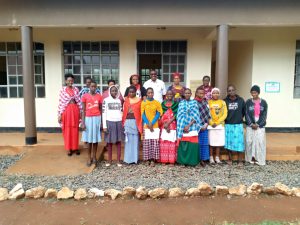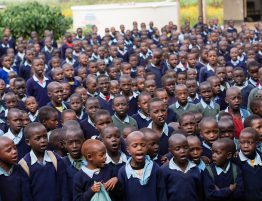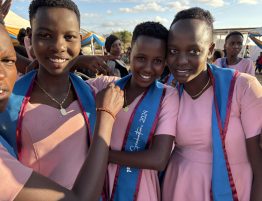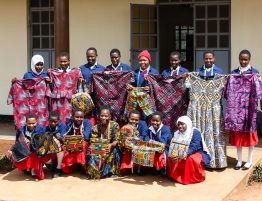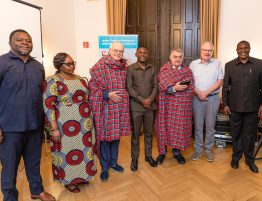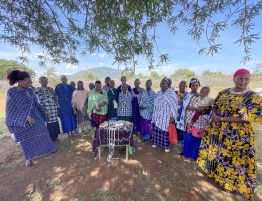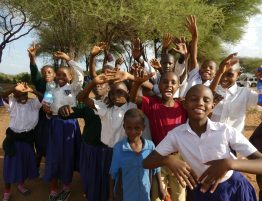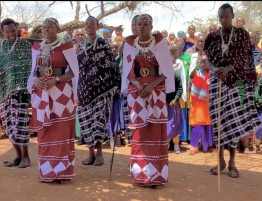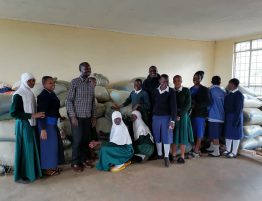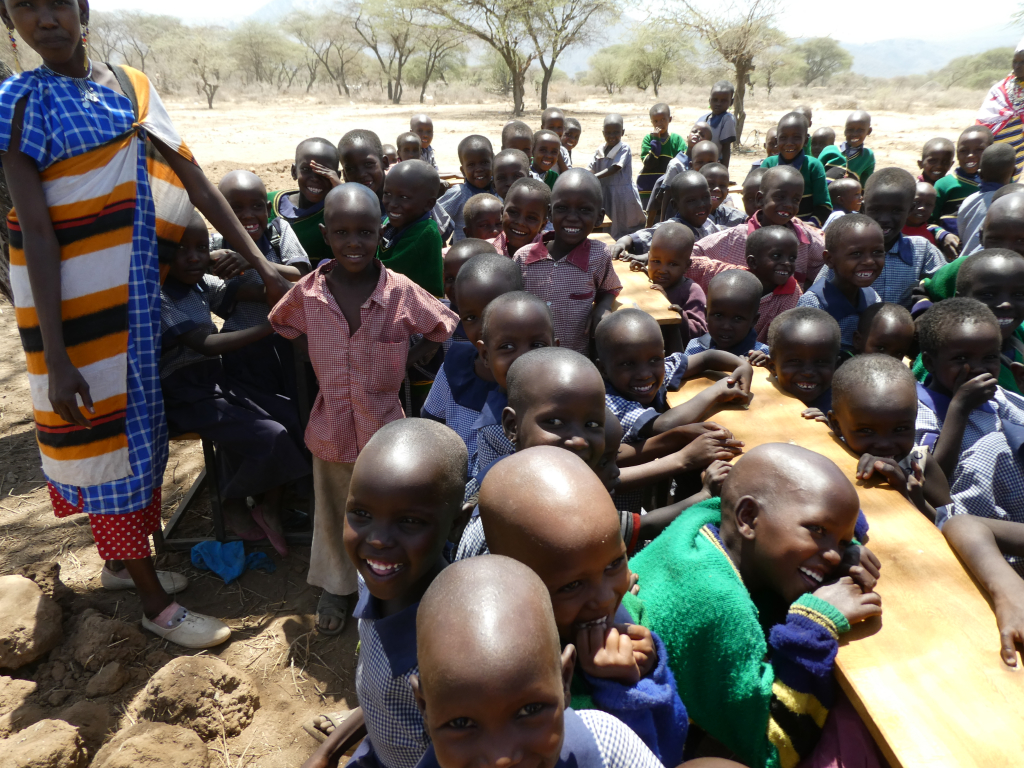
A look back at 2022
In 2022, we were once again able to accomplish all our projects in Tanzania as planned and have every reason to look back with gratitude. In addition to the water filtration project in Naiti, we were able to hand over 11 Primary School projects to the Tanzanian government, who runs the schools. Some schools were renovated, others expanded, and some are completely new. More on this will follow in the annual report of in the next months. The capacity building projects were also continued and expanded: besides the women’s work in the seminar centre of ECLAT and upendo in the villages, the family planning campaign for men began last year (with very good success), as did the support of craft students in setting up their businesses once they have completed their training.
Outlook 2023
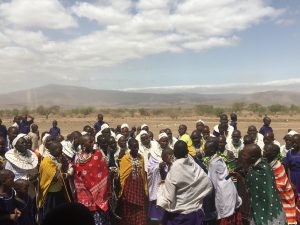
Participants at the handover ceremony of the new school in Donyonaado
Together with our Tanzanian partner organisation ECLAT, we would like to continue to promote school education in disadvantaged areas of Tanzania in 2023: not all children go to school and far too many children are still packed into one classroom. ECLAT’s work to empower women in a man-dominated society has already borne visible results. However, cultural changes do not happen overnight and women will need our continued support. To ensure that the population growth of the Maasai does not lead to hunger, we will also continue the family planning campaign. In addition, through ECLAT, we want to continue to advise the craft students so that they can set up their own businesses after their training and become successful entrepreneurs. In addition, a new project started in January: ECLAT focuses on teenage girls who do not qualify for further education after completing primary education (grade 7). In most cases, they are married off in their teens and start having children. In a two-year course at the ECLAT Women’s Centre, they are taught the knowledge and skills that will enable them to become more independent later in life and to earn something for themselves. ECLAT brought this project to our attention last year. We are happy that the project has now been able to start thanks to a foundation. Catherine Maguzu, who is responsible for the capacity building work at ECLAT, has thankfully explained the project in more detail in the article below.
Our environmental and conservation-related projects with the PAMS Foundation are also to be continued in 2023. These include the education of young people at Secondary Schools situated east and west of Tarangire National Park as well as the protection of the elephant corridor at Ngorongoro Crater.
Young Women Economic Development Project
ECLAT has a passion to bring change deep in the hearts of the community members she serves. It embraces a holistic development view and the departments are well interconnected serving the same target group. The Young Women project is housed by the Women Empowerment Department and well facilitated closely by the Capacity Development Department.
10 of the 12 girls selected for the first Young Women course
For more than five years now ECLAT has worked with women aged over 20 years who have endured the hardships of raising a generation without any skills, ability to make decisions on house related matters, having a stable income of their own, marrying off their girls at an early age without education. The poverty cycle hence goes on and is never broken. Barriers to development are everywhere for the rural Tanzanian woman. These include lower incomes, unpaid household, farm and livestock work, limited access to training, financial services and support. The situation is even worse for rural and older women.
However, with the interventions at place, the organization has realized success with this target group. The habit of saving and accessing soft loans, change of attitude on ownership of business projects and income is a major leap in the right direction.
We are excited and passionate about working with young women too. ECLAT expects to break the vicious poverty cycle earlier in their young lives. The project targets young girls or women aged between 15- 20 years. The objective is to instill vocational skills that increase opportunities for productive employment of the target group.
These young women are either primary and secondary school drop outs or have missed qualifications to join the next level of education in Tanzania. Some families may not afford secondary school education or the schools are too far. The existing training opportunities are prohibitively expensive and may not be geared towards the local market. Lacking skills and education their choices are limited since they also do not own any socio economic resources like land. This necessitates them to relapse to cultural ways of livelihood and early marriages.
The organization shall offer professional skills on tailoring, catering and events planning and management in 2-year courses. These are market led skills since the local demand for the same is available.
In addition to professional skills, the young women also have the opportunity in the courses to improve their social and personal skills. They will learn to develop ideas, communicate clearly and think independently. Reliability, initiative and self-confidence are also key elements since making a positive impression is crucial to finding a job. The young trainees therefore also learn entrepreneurial skills such as business planning, marketing and simple finance management. In this way, the courses inspire entrepreneurship and a sense of optimism for a brighter future.
Catherine Maguzu
Photos: Esther Paul, Fred Heimbach (2022)

